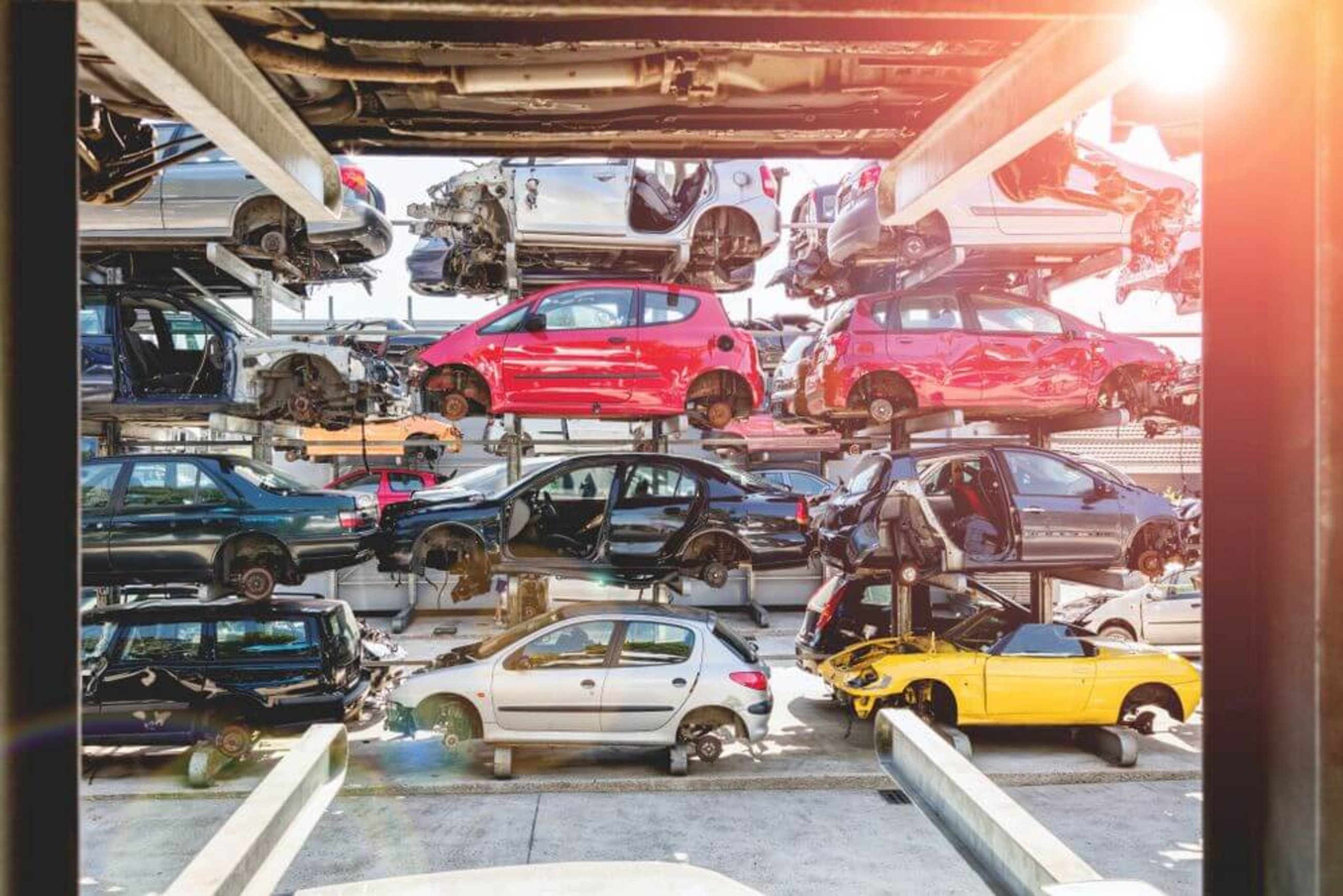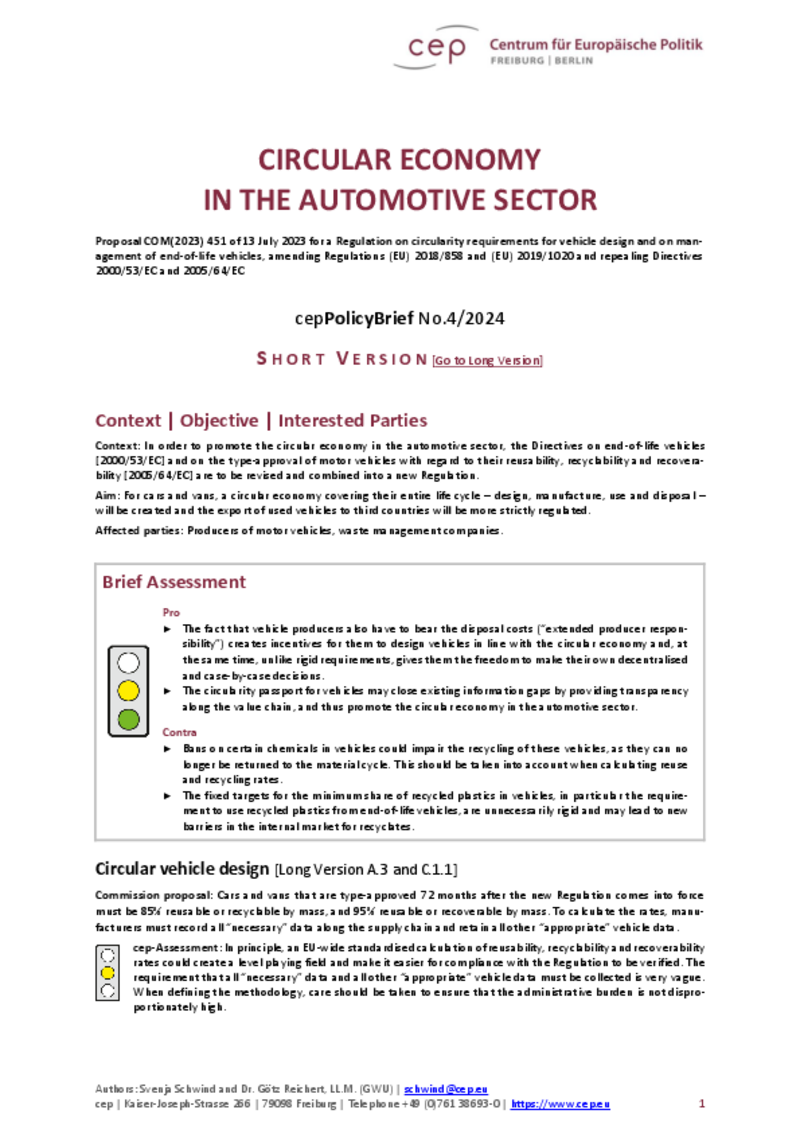
Environment
Circular Economy in the Automotive Sector (cepPolicyBrief)
cepPolicyBrief
"Not least in the automotive sector, materials have been used in recent decades that will soon be banned and therefore cannot be recycled. These include the so-called perpetual chemicals PFAS, most of which could be banned in the future," says cep expert Svenja Schwind, who wrote the study with cep lawyer Götz Reichert. A reuse and recycling rate of 85 per cent is therefore unrealistic. The expected bans should be taken into account when calculating the quota.
The Commission's aim is to conserve resources, avoid or at least reduce waste and return secondary raw materials recovered through recycling to the economic cycle by designing vehicles in a circular fashion. "This can also reduce the need for primary raw materials, the extraction and procurement of which can sometimes lead to considerable environmental pollution and dependence on imports from supplier countries outside the EU," says the cep researcher.
According to Schwind, open rather than closed material cycles should be prioritised in the future.





